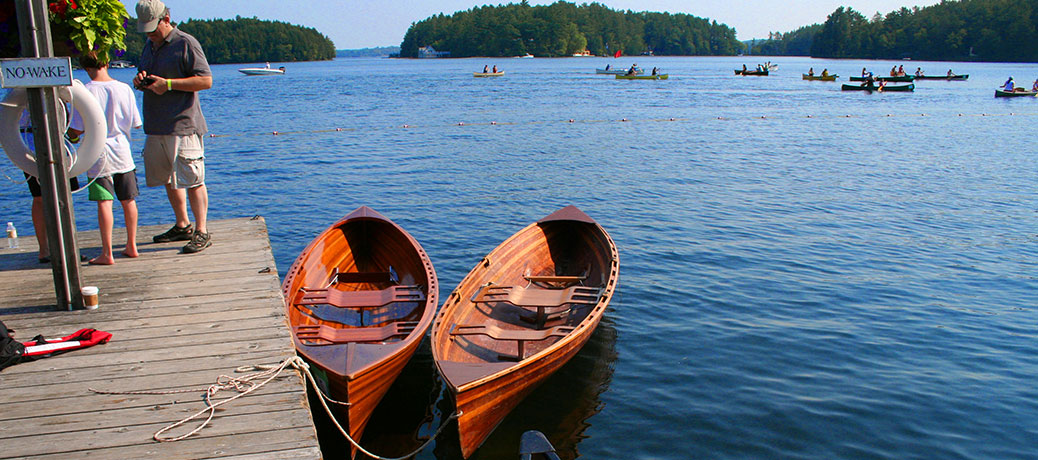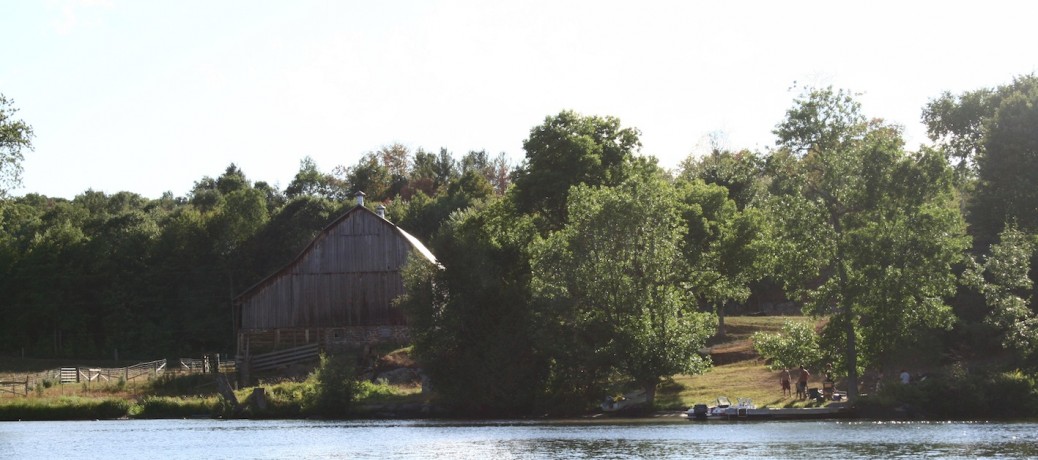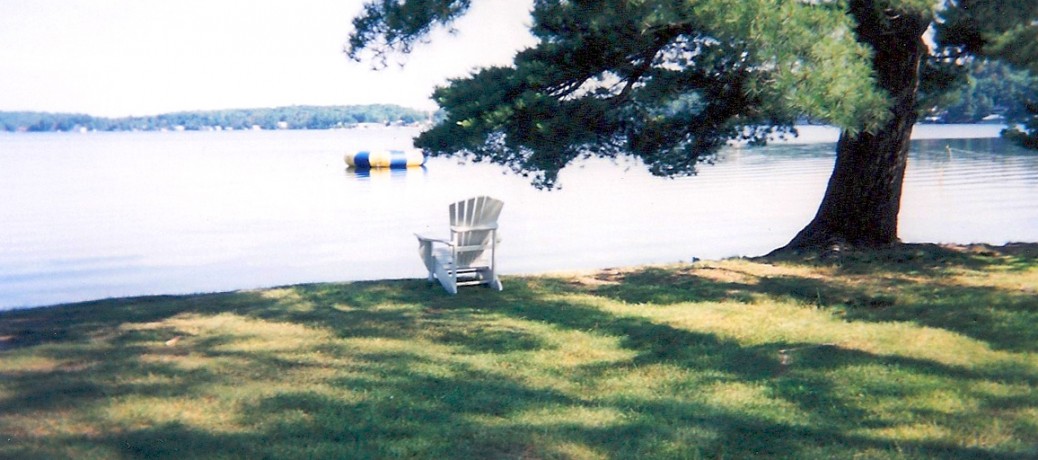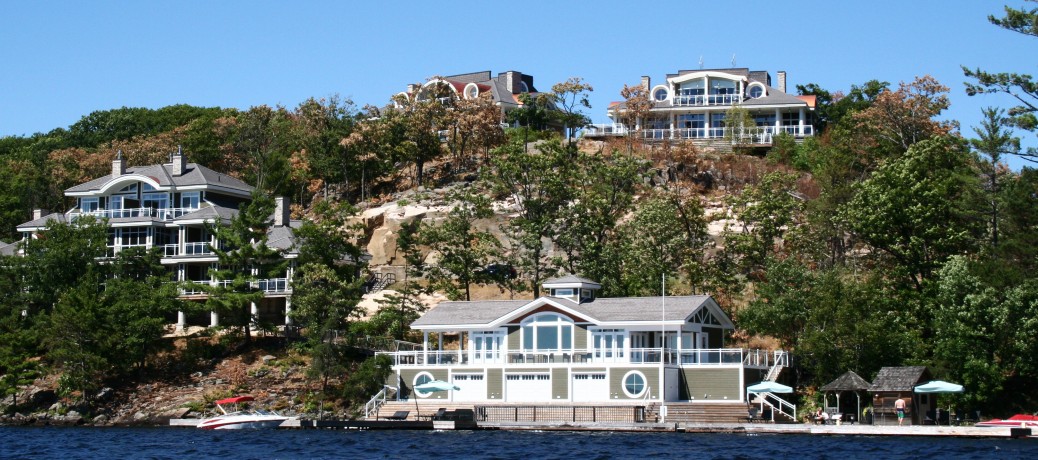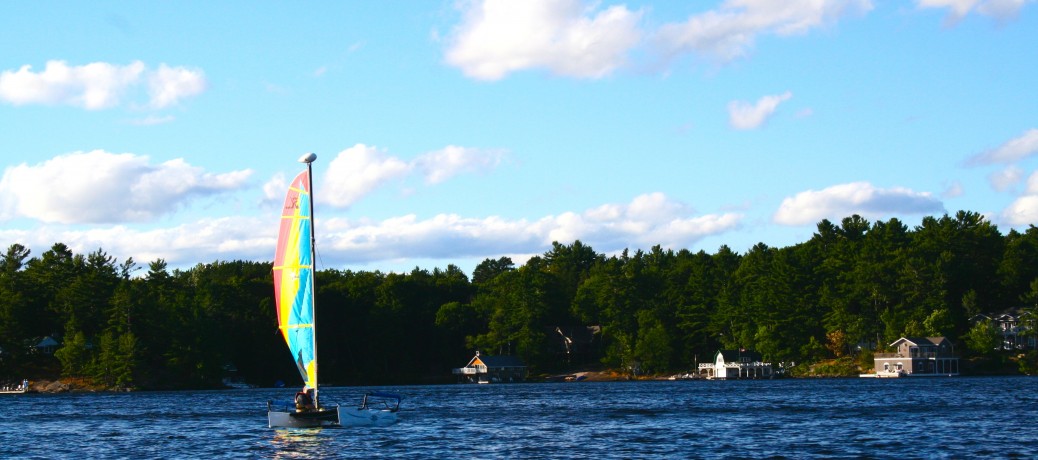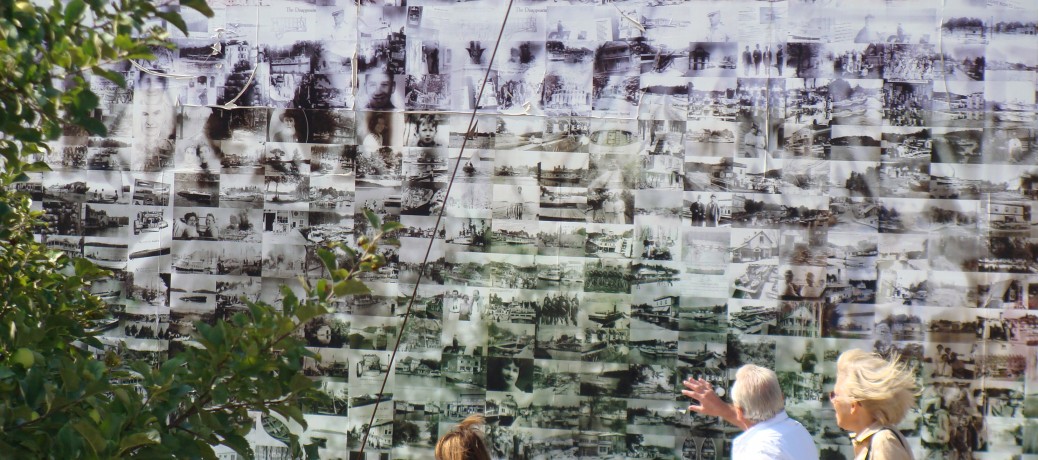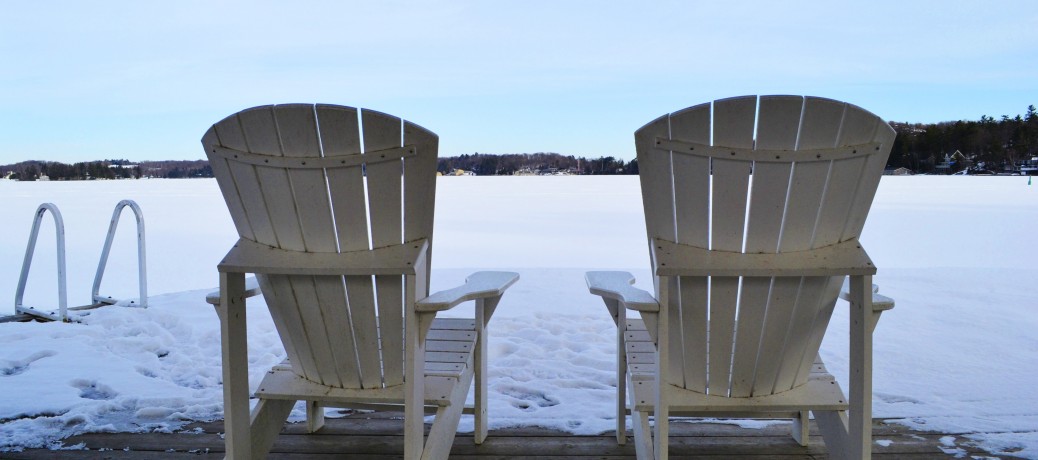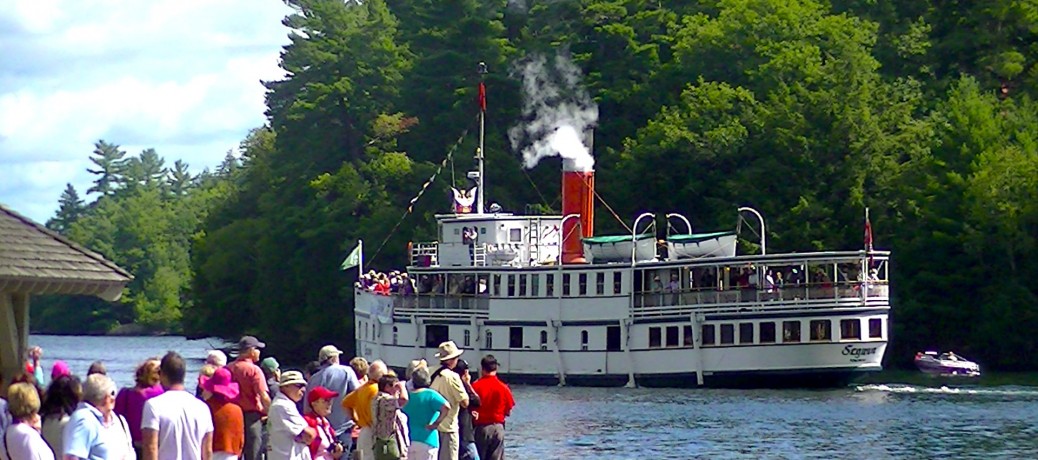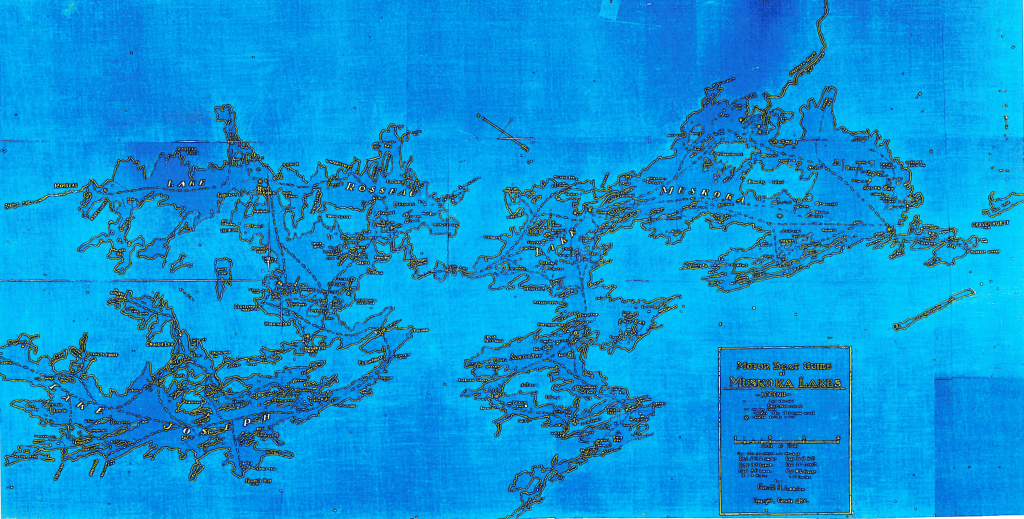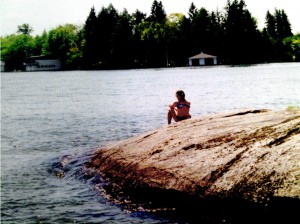For more than a century, Muskoka, the lakeside district just two hours north of Toronto, was the Mecca for tourism in Ontario.
From small farm towns grew a vacation haven for folks from Toronto, Hamilton, Detroit, and even further afield … a destination where they could escape the smoggy summer city air and enjoy nature, breathe the fresh air, swim in the freshwater lakes, and feel the cool breeze.
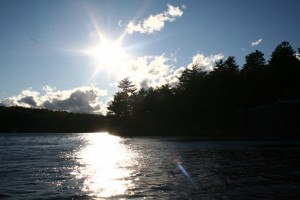
Muskoka’s landscape of lakes, rocks, and trees has been an iconic image of Ontario’s vacation regions for over a hundred years.
Photo by Erin Morawetz
But the Muskoka of today is very different. True enough, the lakes are still there; and the trees, too, though perhaps fewer. But cottages crowd every shoreline, blighting the once pristine vistas and damaging the water quality, while the hotels and resorts that were once the most prevalent industry in the area are struggling to attract vacationers. Despite its image of opulence, wealth, and a vibrant tourism industry, the Muskoka region is struggling economically, its future far from assured.
So how did Muskoka grow to become at one time such a vibrant tourist destination, how did it decline, and can anything be done to reverse what appears to be a trajectory to oblivion? Just like their setting, the problems the region faces are complicated, and they have left permanent residents and cottagers alike grappling with them. For without tourism, they wonder, what will become of their beloved Muskoka? And in struggling to find ways to preserve the Muskoka they love so dearly, are they inadvertently destroying its one true draw—its heritage?
Continue reading
- Part 1: The deep roots of tourism in Muskoka
- Part 2: The golden era of “Ma and Pa” resorts
- Part 3: The rise of the fractional
- Part 4: The loss of tranquility
- Part 5: Muskoka and the wrecking ball
- Part 6: The Muskoka question
- Part 7: Bringing Muskoka back to its roots
About the author
This project is the culmination of a year’s worth of interviews, investigation, and insight into the Muskoka region of Ontario as a partial requirement for the Master of Journalism program at Carleton University.
I grew up in Toronto and spent my childhood summers splashing around in Lake Joseph, golfing at the Muskoka Lakes Golf and Country Club, eating ice cream at Port Sandfield, and shopping in Port Carling. I always loved spending time at the cottage. However, it was not until the summer of 2011, the last summer my immediate family owned part of my family cottage on Lake Joseph, that I realized how much my summers in Muskoka had meant to me and shaped my imagination and sense of the outdoors.
This project has been a labour of love for this region that is so dear to my heart, and I am truly invested in the future of Muskoka. Anyone who has the chance to visit Muskoka should consider themselves lucky, as I do, and on the flip side, I believe everyone should have that chance, for such a place of true natural beauty should never be hidden from the “free and travelling public.”
There are many people who have helped me in great amounts with this project who deserve my utmost thanks: my amazing parents, who allowed me to spend carefree days by the lake growing up and who were at times during the last year my production assistants, editors, and archivists; my grandparents, who originally brought my father’s family to Elgin House resort and eventually bought a cottage of their own, instilling a love for the area in their children and beginning a summer tradition; my MRP advisor, Chris Dornan, who somehow managed to understand my thoughts before I did and provided me endless insight into how all my research could come together; Roger Martin, for all his technical assistance on this website; Dave Elliott, for his work transferring my raw video footage; my classmates in the MJ class of 2013, for all their support, suggestions, and friendship over a stressful two years; my dear friends the Elliotts, who have extended an open invitation to me to visit their beautiful cottage, Red Pines, whenever I crave the lakes and the trees; Liz Denyar and Lynn Austin, each of whom introduced me to so many people and welcomed me into their Muskoka homes for a place to stay while I was researching; and all the people I spoke with and interviewed, for being so candid about their backgrounds, their families, their expertise, and their connection to this place we all love.
For here’s what I know now that I didn’t growing up—the time I spent at the lake would become my favourite and most cherished memories. And I, for one, hope Muskoka remains a place available to anyone to make new memories, while at the same time, the collective memories of the region’s heritage are kept alive.
—Erin Morawetz
